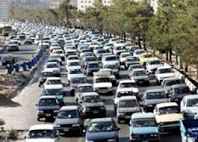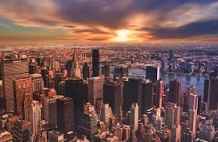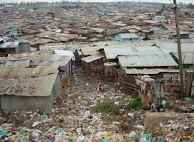Problems of urbanization

Urbanization is expanding rapidly and brings with it various problems. These problems have profound effects not only on the urban structure, but also on the environment, economy and social life. Some of the most important problems of urbanization are mentioned below:
The main problems of urbanization:
-
Population density:
Rapid population growth in cities leads to an increase in population density. This leads to problems such as housing shortages, rising prices, heavy traffic, and reduced quality of life. -
Environmental problems:
Urbanization often leads to the destruction of natural resources, increased air and water pollution, and destruction of natural habitats. The increase of urban garbage and waste is also one of the big environmental challenges. -
Lack of sufficient infrastructure:
Cities often cannot keep pace with population growth, leading to a lack of essential infrastructure such as water, electricity, sanitation systems, and public transportation. -
Unemployment and poverty:
Many people migrate to cities hoping to find work, but the inability of the urban economy to attract this workforce leads to unemployment and an increase in urban poverty. Poor neighborhoods and slums are also the result of these conditions.

-
Transportation problems:
Traffic congestion, inefficiency of public transportation systems and pollution caused by cars are major problems of urbanization. The lack of roads and the increase in cars also lead to heavy traffic. -
reduction of green spaces:
The expansion of urbanization is usually done at the expense of green spaces. The reduction of these spaces has a negative effect on the air quality of the cities and psychologically has a negative effect on the residents. -
Increase in crimes and insecurity:
The rapid growth of cities and high population density can lead to an increase in urban crimes and violence. Lack of amenities and lack of fair distribution of resources can be one of the causes of increasing insecurity in cities. -
Cultural and social challenges:
With the migration of people from different regions to cities, cultural and social diversity increases. This diversity may lead to cultural differences and social problems including class divisions and social inequalities.
Solutions:
In order to reduce the problems of urbanization, there is a need for smart and sustainable urban planning. Some effective solutions are:
- Development of infrastructure and improvement of public transportation
- Increasing green spaces and environmental protection
- Expansion of low-cost housing and reduction of slum density
- Strengthening the urban economy to create more job opportunities
- Improving health and educational services in urban areas
Comprehensive planning and proper management can prevent the increase of problems caused by urbanization and improve the quality of urban life.
